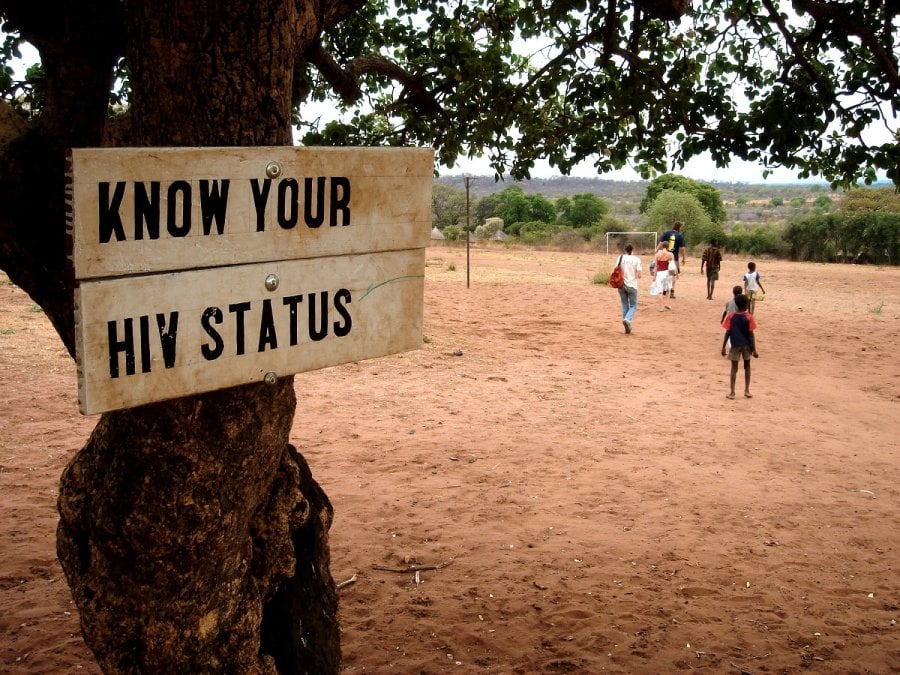Response to HIV/AIDS epidemic at risk of “dangerous complacency” as urgent change in approach is needed
20 July 2018 London School of Hygiene & Tropical Medicine London School of Hygiene & Tropical Medicine https://lshtm.ac.uk/themes/custom/lshtm/images/lshtm-logo-black.png
Led by the International AIDS Society, the report combines the expertise of more than 40 international experts, including Professor Peter Piot, Director of the London School of Hygiene & Tropical Medicine (LSHTM).
Changes to the HIV response are needed to win the global fight against HIV, and the authors propose that researchers and health care professionals need to work more closely with their counterparts in global health, HIV services need to be included into wider health services, and global health policies need to incorporate HIV.
The authors make recommendations for how HIV and global health can work together to advance global health and improve the HIV response. The report also models the impact of combining HIV within other health services in five countries, and is being presented at the AIDS 2018 conference in Amsterdam.
Professor Peter Piot said: “The International AIDS Society-Lancet Commission is the first of its kind to assess the future of the HIV response in the era of a more integrated health approach in the context of the Sustainable Development Goals.
“One of the most important findings of the Commission is that we are not on track to end the HIV pandemic and that the prevailing discourse on the ‘End of AIDS’ has bred a dangerous complacency that may have accelerated the weakening of global resolve to fight HIV. Great strides have been made, but achievements are not successes. HIV will remain a long-term challenge and declaring victory before our fight is over could have devastating consequences.
“The future of our response is in both strengthening specific HIV responses, in particular HIV prevention, and integrating HIV services where we can with other health services and the global health field more broadly. The Report demonstrates that a more integrated HIV response can be both cost-effective and offer ‘win-win’ results for both HIV and non-HIV health outcomes.
“We need to work together to reboot the HIV response, ensuring that we are putting people at the centre of our efforts. I hope that the upcoming International AIDS Conference in Amsterdam is a catalyst for rejuvenated efforts, renewed investment, greater collaboration, and a reinvigorated human rights approach that is so badly needed.”
LSHTM conducts world-leading HIV/AIDS research and will have a significant presence throughout the 2018 International AIDS Conference, including:
- On Saturday 21 July the STRIVE Research Consortium led by LSHTM is hosting a pre-conference session on ‘successfully tackling the structural drivers of HIV’. Professor Peter Piot will join HRH The Duke of Sussex for a roundtable session to advance the ambition of HIV charity Sentebale’s advocacy programme, Let Youth Lead, on Monday 23 July.
- Professor Janet Seeley co-chairs a session on Tuesday 24 July that presents findings of a special Journal of the International AIDS Society supplement ‘Population Mobility: Challenges for Universal HIV Testing and Treatment’ which she has co-edited.
- On Thursday 26 July Professor Peter Piot will be giving a plenary talk on Global Health and the HIV response, and Professor James Hargreaves will present at the rapporteur session on Friday 27 July, synthesizing the presentations made during the week on Track E on Implementation Research, Economics, Systems and Synergies with other Health and Development Sectors.
To find out more about LSHTM’s presence at the event, visit the International AIDS Conference website.
Publication
Linda Gail-Bekker et al. Advancing global health and strengthening the HIV response in the era of the Sustainable Development Goals: the International AIDS Society—Lancet Commission. The Lancet. DOI: https://doi.org/10.1016/S0140-6736(18)31070-5
Our postgraduate taught courses provide health practitioners, clinicians, policy-makers, scientists and recent graduates with a world-class qualification in public and global health.
If you are coming to LSHTM to study a distance learning programme (PG Cert, PG Dip, MSc or individual modules) starting in 2024, you may be eligible for a 5% discount on your tuition fees.
These fee reduction schemes are available for a limited time only.